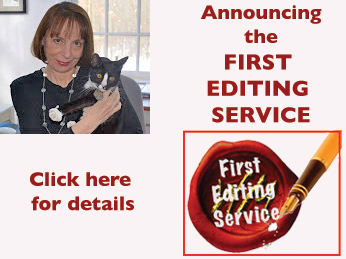 Post #34 – Women’s Memoirs, Writing Prompt – Kendra Bonnett and Matilda Butler
Post #34 – Women’s Memoirs, Writing Prompt – Kendra Bonnett and Matilda Butler
By Promptly Portland
When I began the trilogy of blog posts of WORDS, I intended to do just that — write three posts. The first focused on individual words, the second on words and sentences, and the third on words and paragraphs. However, when I got to the end, I found I had another exercise that didn’t really fit any of the single blogs because it crosses all three.
Therefore, I’ve got a bonus for you today. But let me begin with a few examples. The first is from Samantha Dunn’s memoir Not by Accident: Reconstructing a Careless Life. Her opening paragraph is:
“It begins with a jerk and a click, as if a projector is being turned on in the middle of a film. A winding canyon trail lies in front of me. Live Oak leaves tough and green mottle the late afternoon light that filters down. I ease the leather of well-oiled reins between my fingers.”
As an aside, let me say that two pages later in this memoir, the author tells of being thrown by her horse. See if you think these two paragraphs are as effective as I do:
“His hind hoof has just sliced the middle of my left shin, cutting like a dull shovel straight through the bones, the muscles, ligaments and veins, leaving a hinge of calf muscle and sinew.
It can’t be as bad as it looks, I think. It really can’t be this bad.”
Before getting to the exercise, let me give a second example, again it is the first paragraph. This one is from The Virgin of Bennington by Kathleen Norris.
“In 1965, when I was seventeen, I became Nick Carraway. That is, I found myself living out the core of F. Scott Fitzgerald’s The Great Gatsby, which is how young westerners adapt–or do not adapt–to what seems to them the dazzling but dangerous world of the East Coast. A middle-westerner by heritage, and far-westerner by virtue of having spent my adolescence in Hawaii, I had no idea, when I applied to Bennington College in Vermont, that I was signing up for a crash course in the turbulent dynamics of place and culture. I had chosen the school because, having dutifully fulfilled the minimum requirements for math courses at my preparatory school in Honolulu, I was seeking a place that would accept me as I was, precociously devoted to literature but unable to master the rudiments of algebra. Bennington had little in the way of a required curriculum, and I felt ready to chart my own course.”
I can’t resist a third example before giving you an exercise because together these three memoirs provide a wide sample of use of words singly, in sentences, in paragraphs. Lillian Ross begins her memoir Here But not Here with this paragraph:
“All enduring love between two people, however startling or unconventional, feels unalterable, predestined, compelling, and intrinsically normal to the couple immersed in it, so I would have to say that I had an intrinsically normal life for over four decades with William Shawn, the late editor of The New Yorker. We loved each other. We remained in love with each other until the day he died, unexpectedly, on December 8, 1992. We signed off every telephone call, every casual parting, every ‘good night’ — including that of the night before his death — with ‘I love you.’ From the first instance of his open declaration of love, Bill Shawn continued to say it and to make me feel his love. I learned to respond with the same word. ‘Love’ isn’t a word I take lightly or tire of today.”
These are three quite different opening paragraphs. Consider the first word, the first sentence, the first paragraph of these memoirs. Perhaps you have one or two favorite memoirs that you’d like to add to this set of examples. Now with this material standing ready:
500 Words (or more):
1. Analyze the impact of the first word of each of the three (or more if you have added your own examples). Is it powerful? Is it weak? Does it get you started well on several hours of reading?
2. Analyze the impact of the first sentence of each of the examples. What does it tell you? Does it work to bring you into the story? Is it a 90-pound weakling or does it have real muscle tone?
3. Analyze the impact of the first paragraph. Taken as a whole does it meet your internal criteria for words and sentences well spent?
4. Now, take one of the memoir vignettes or chapters you have written. Consider you first word, your first sentence, your first paragraph. In what ways do they convey the information, the emotion, the imagery, the mood, the setting that you intended? Can you change them so that they better match what you want the reader to know, to feel, to see?
If you have added an example from another memoir, please leave a Comment below and tell me the name of the memoir. Why did you choose it? What do you think about its opening word, sentence, paragraph? Share what you think works and what doesn’t work. We learn from both.
Until next time,
Promptly Portland
memoir writing prompt
writing tips
craft of memoir
memoir writing
writing

















